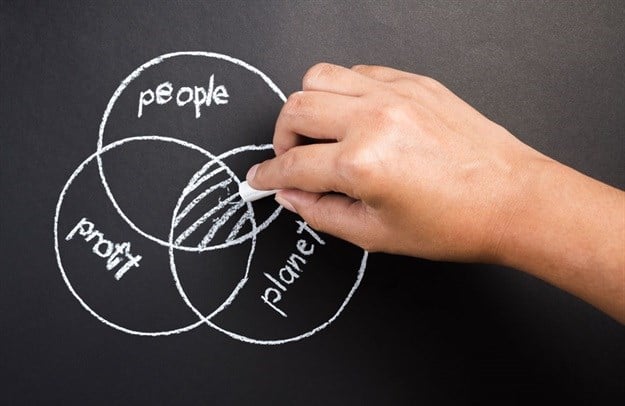Sustainability is the ultimate long-term goal of any company, which allows it to contribute to the development of the country where it operates. It is no longer merely about profitability, but a phenomenon that must support the goals of a company through the triple context of its social, environmental and economic aspects. The triple context is, in essence, about ensuring that development meets the needs of the present without compromising the ability of future generations to meet their needs, as defined in the King IV report.
Goal of a sustainable world
The need for companies to share in this vision is paramount to support not only their own sustainability but that of the communities that surround them. The key issues around sustainability have been debated across various industries and global forums. What industry leaders agree on is that the goal of what is known as the triple context of sustainability is ultimately a sustainable world. Defining sustainability correctly to deliver on key outcomes is no longer a universal challenge, as this is now set out in the King IV report as a business imperative.
Developing scalable models and impactful partnerships should be at the heart of progress towards reaching goals as defined by organisations that are conscious of sustainability. The approach to partnership across business, civil society and government is vital to maximising the impact of programmes and making them more sustainable.
Global partnership with UN Women
For example, in Coca-Cola’s signature global partnership with UN Women, we are able to leverage their reach and influence as a leader in promoting gender equality and economic empowerment while also capitalising on CCBSA’s global value chain and extensive business expertise. Over three years, this partnership aims to reach more than 40,000 women in Egypt, Brazil and South Africa, providing valuable insights on sustainable project models that can be scaled up worldwide.
CCBSA has entrenched, as part of its overall business strategy, the triple context. This was of utmost importance to CCBSA because its business principles are founded on longevity and sustainability. Our current focus draws on the broad spectrum of sustainable development issues as experienced by the business.
The current focus is on programmes that have great impact on the business and the communities engaged, namely:
Sustainable packaging: Our end goal is to reduce our material use, source recycled and renewable materials, and build a restorative packaging system.
Climate protection: Recent changes in climate patterns force us to reduce the impact of our business processes.
Being a good neighbour: No company can operate in South Africa and not make a concerted effort for the development of communities to ensure lasting beneficiation and poverty alleviation.
Sustainable agriculture: We strongly support the sustainable supply of ingredients, while supporting farmers and agricultural communities.














































